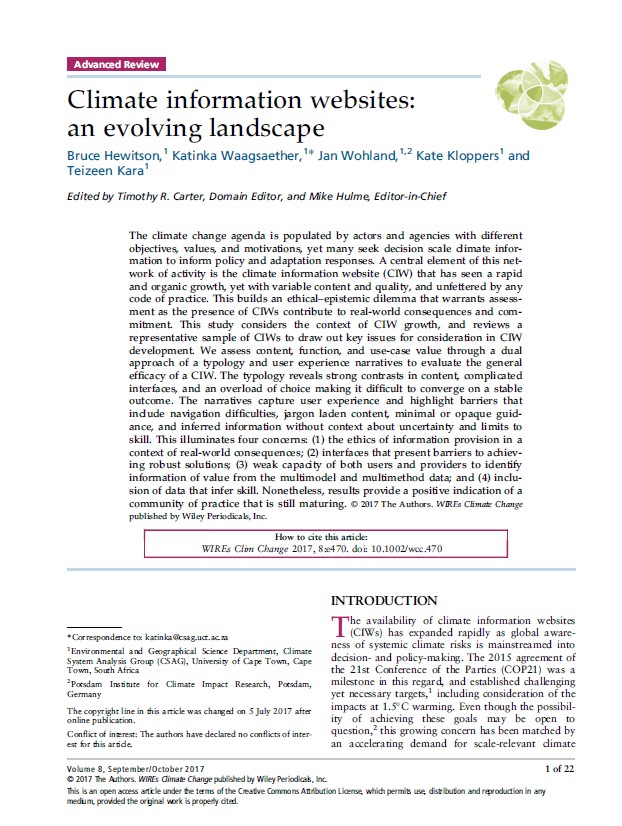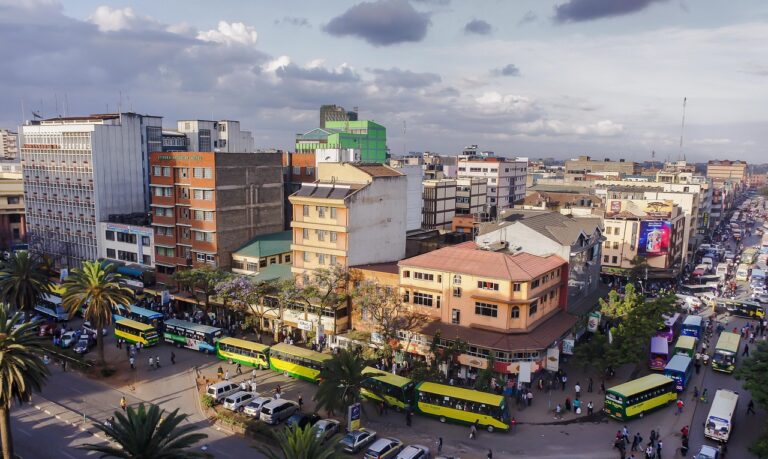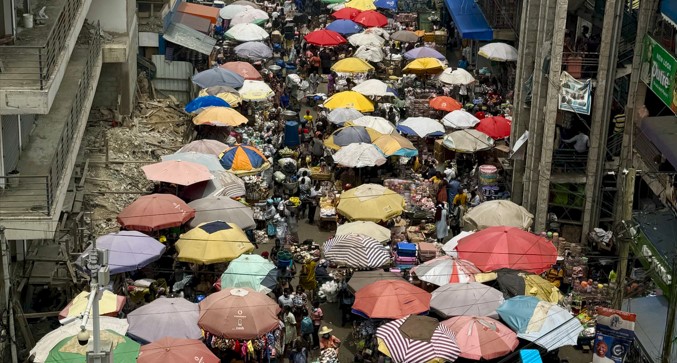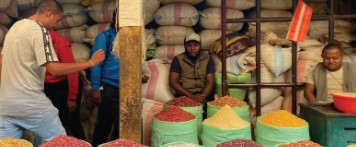Climate information websites: an evolving landscape




Download:
Related ICLEI Pathway(s)
About
Resource summary
The climate change agenda is populated by actors and agencies with different objectives, values, and motivations, yet many seek decision scale climate information to inform policy and adaptation responses. A central element of this network of activity is the climate information website (CIW) that has seen a rapid and organic growth, yet with variable content and quality, and unfettered by any code of practice. This builds an ethical–epistemic dilemma that warrants assessment as the presence of CIWs contribute to real-world consequences and commitment. This study considers the context of CIW growth, and reviews a representative sample of CIWs to draw out key issues for consideration in CIW development. We assess content, function, and use-case value through a dual approach of a typology and user experience narratives to evaluate the general efficacy of a CIW. The typology reveals strong contrasts in content, complicated interfaces, and an overload of choice making it difficult to converge on a stable outcome. The narratives capture user experience and highlight barriers that include navigation difficulties, jargon laden content, minimal or opaque guidance, and inferred information without context about uncertainty and limits to skill. This illuminates four concerns:
- the ethics of information provision in a context of real-world consequences;
- interfaces that present barriers to achieving robust solutions;
- weak capacity of both users and providers to identify information of value from the multimodel and multimethod data; and
- inclusion of data that infer skill. Nonetheless, results provide a positive indication of a community of practice that is still maturing.
The climate change agenda is populated by actors and agencies with different
objectives, values, and motivations, yet many seek decision scale climate infor-
mation to inform policy and adaptation responses. A central element of this net-
work of activity is the climate information website (CIW) that has seen a rapid
and organic growth, yet with variable content and quality, and unfettered by any
code of practice. This builds an ethical–epistemic dilemma that warrants assess-
ment as the presence of CIWs contribute to real-world consequences and com-
mitment. This study considers the context of CIW growth, and reviews a
representative sample of CIWs to draw out key issues for consideration in CIW
development. We assess content, function, and use-case value through a dual
approach of a typology and user experience narratives to evaluate the general
efficacy of a CIW. The typology reveals strong contrasts in content, complicated
interfaces, and an overload of choice making it difficult to converge on a stable
outcome. The narratives capture user experience and highlight barriers that
include navigation difficulties, jargon laden content, minimal or opaque guid-
ance, and inferred information without context about uncertainty and limits to
skill. This illuminates four concerns: (1) the ethics of information provision in a
context of real-world consequences; (2) interfaces that present barriers to achiev-
ing robust solutions; (3) weak capacity of both users and providers to identify
information of value from the multimodel and multimethod data; and (4) inclu-
sion of data that infer skill. Nonetheless, results provide a positive indication of a
community of practice that is still maturing.
Related resources

TRACKING TRANSFORMATION: How African Cities Are Driving Global Climate Action Through Local Data

Resilient Municipal Market Fund (ReMark) Instrument Analysis


